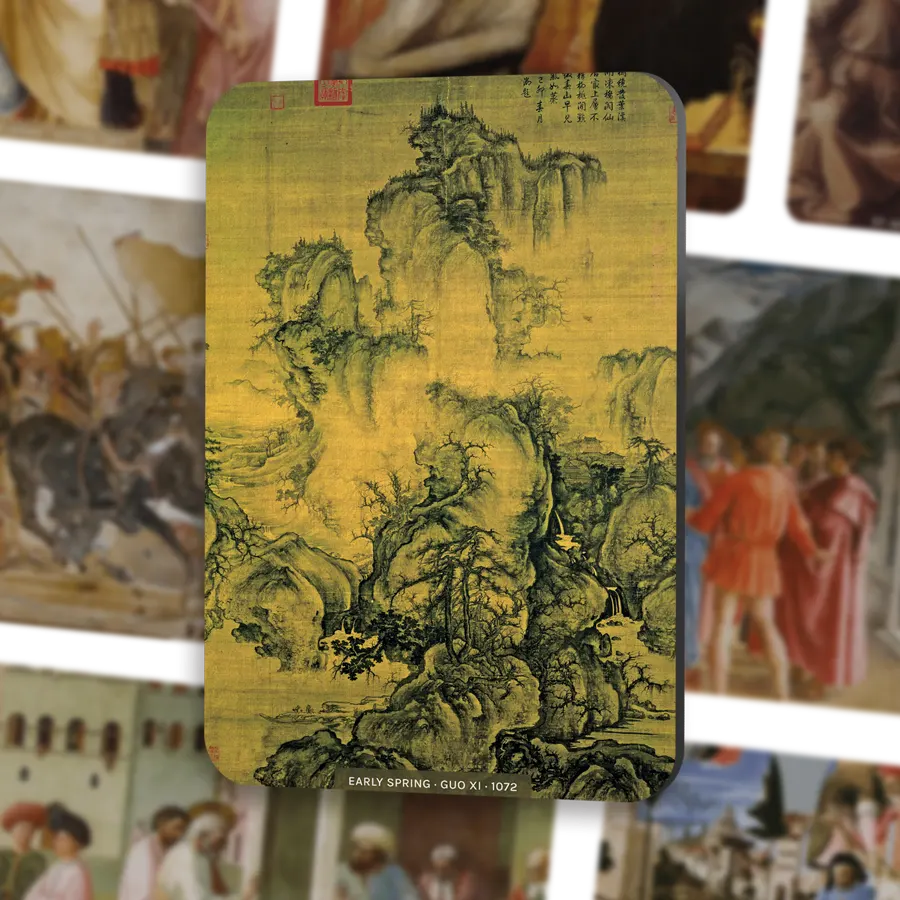Music has been an integral part of human civilization since ancient times. It is a universal language that has the power to transcend all barriers and connect people from different cultures and backgrounds. The history of music is a rich tapestry of melodies, rhythms, and expressions that have evolved and shaped our society throughout the ages. From the humble beginnings of chanting to the complex beats of contemporary music, let's take a journey through the fascinating history of music.
What is the history of music?
How did music originate?
The origin of music dates back to prehistoric times when early humans discovered the power of their voice. It is believed that music initially started with simple sounds and rhythmic patterns created by clapping hands or slapping objects together. These primitive forms of music were used for rituals, ceremonies, and communication.
What were the early forms of music?
As human societies developed, so did the complexity of music. Early civilizations like the Ancient Greeks, Egyptians, and Indians had a strong musical tradition. They used various instruments like the flute, lyre, and percussion instruments to create melodies and rhythms. These early forms of music were often intertwined with religious and cultural practices.
How did music evolve over time?
Music continued to evolve throughout history, reflecting the changing social, cultural, and technological landscape of different periods. One significant period in music history is the Renaissance, which witnessed a resurgence of interest in the arts and sciences. During this time, music became more intricate and sophisticated, featuring polyphonic compositions and the development of musical notation.
What are the different periods in the history of music?
What defines the Renaissance period in music?
The Renaissance period marked a transition from the medieval music of the Middle Ages to the classical music of the Baroque era. It was characterized by a renewed focus on humanism, leading to the development of new musical techniques, forms, and styles.
How did classical music shape the history of music?
Classical music, which emerged during the late 18th century, had a profound impact on the history of music. Composers like Mozart, Beethoven, and Bach revolutionized musical composition and expanded the range and complexity of orchestral music. Classical music is known for its structured forms, rich harmonies, and emotional depth.
What are the key characteristics of romantic music?
The Romantic period in music, spanning the 19th century, was characterized by a shift towards individual expression, emotion, and imagination. Composers like Chopin, Schubert, and Tchaikovsky composed music that evoked intense feelings and showcased virtuosic performances. Romantic music is characterized by its lush harmonies, expressive melodies, and dramatic contrasts.
How has music influenced culture throughout history?
What role did music play in ancient civilizations?
In ancient civilizations, music played a crucial role in religious rituals, social gatherings, and storytelling. In cultures like ancient Greece and Rome, music was believed to have the power to move the human soul and connect with the divine. It was also used as a form of communication and expression.
How did music change during the Baroque period?
The Baroque period, which spanned from the late 16th century to the early 18th century, was characterized by ornate and elaborate musical compositions. Baroque music featured intricate melodies, rich harmonies, and virtuosic performances. Composers like Bach and Handel left a lasting impact on the development of instrumental music and opera.
What impact did electronic music have on the music industry?
The advent of electronic music in the 20th century revolutionized the music industry. With the invention of synthesizers and other electronic instruments, musicians had new tools to experiment with sounds and create innovative compositions. Electronic music genres like techno, house, and hip-hop reshaped popular music and paved the way for new forms of artistic expression.
Who are some famous composers in music history?
Who were the notable composers of the Renaissance era?
The Renaissance era produced remarkable composers like Josquin des Prez, Giovanni Palestrina, and William Byrd. Their compositions demonstrated a mastery of polyphony and vocal harmonies and set the stage for the development of choral music.
What are some iconic classical composers and their compositions?
The classical period gave birth to legendary composers like Mozart, Beethoven, and Haydn. Mozart's symphonies, Beethoven's piano sonatas, and Haydn's string quartets are some of the most iconic compositions in classical music history. These composers pushed the boundaries of musical expression and left an indelible mark on the genre.
Who are the prominent composers of the Romantic period?
The Romantic period saw the rise of composers like Chopin, Schumann, and Wagner. Chopin's piano works, Schumann's lieder and Wagner's operas are renowned for their emotional depth and technical brilliance. These composers embraced individualism and pushed the boundaries of musical expression.
What is the future of music?
How is technology shaping the future of music?
Technology continues to have a profound impact on the future of music. Digital recording, streaming platforms, and artificial intelligence are transforming the way music is created, distributed, and consumed. Virtual reality and augmented reality are also opening up new possibilities for immersive musical experiences.
What are emerging musical genres in contemporary music?
In contemporary music, new genres and subgenres are constantly emerging. From indie folk and electronic dance music to K-pop and Afrobeat, the musical landscape is constantly evolving. These emerging genres are often influenced by cultural, social, and technological trends.
How are new artists and musicians redefining the music industry?
New artists and musicians are challenging conventions and redefining the music industry. Through social media platforms and online streaming services, independent artists have gained more visibility and control over their music. They are experimenting with different styles and approaches, breaking traditional boundaries and creating unique sounds.
As we reflect on the history of music, it becomes clear that music is not just a form of entertainment but a powerful force that shapes our culture, emotions, and identities. From the ancient rituals to the complex compositions of today, music has been a constant companion to humanity's journey through time. It is an expression of our thoughts, feelings, and aspirations, connecting us to our past and guiding us toward the future.
Discover MUSÉEWALL collections - educational magnetic cards for everyone!
Q: How did music originate?
A: The exact origin of music is unknown, but it is believed to have originated with early humans using their voices and basic instruments to create rhythmic sounds.
Q: What are some of the earliest musical instruments?
A: Some of the earliest known musical instruments include flutes made from animal bones, drums made from animal skins, and string instruments made from various materials.
Q: When did written music first appear?
A: Written music, in the form of musical notation, first appeared in ancient civilizations such as Ancient Greece and Ancient Rome. It allowed for the preservation and transmission of musical compositions.
Q: How did music evolve during the Renaissance period?
A: During the Renaissance, music saw a significant shift from the medieval era. The focus shifted from vocal music to instrumental music, and there was a greater emphasis on harmonies and polyphony.
Q: Who was Johann Sebastian Bach and how did he contribute to the history of music?
A: Johann Sebastian Bach was a famous composer from the Baroque period. He is known for his intricate compositions, especially for organ and keyboard instruments, and his contributions to music theory.
Q: What is classical music?
A: Classical music refers to a specific period in music history that spans from the 1750s to the early 19th century. It is characterized by its formal structure, harmonic progression, and use of orchestras.
Q: What is electronic music?
A: Electronic music is a genre of music that relies heavily on electronic instruments and technology for its creation. It originated in the mid-20th century and has since evolved into various subgenres.




